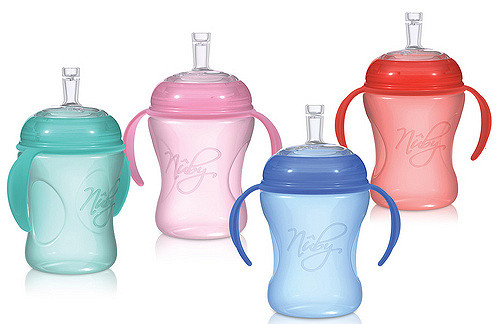Each day, millions of people around the world use plastic products, especially for food and drink, but new research suggests that not just the food and drink make their way into our bodies. In 2004, a chemical called di-2-ethylhexylphlatate (DHEP) was banned in Europe when research confirmed that it had negative human health effects. DHEP was used as a plasticizer, a type of chemical used to give strength, durability, and flexibility to plastic products, such as plastic wrap and food containers. Since 2004, both Europe and the United States have replaced DHEP with plasticizers called di-isononyl phthalate (DINP) and di-isodecyl phthalate (DIDP), which were thought to be safer alternatives to DHEP. Phthalates are a group of chemicals used for plasticizers.
Image Source: Anthony Bradshaw
New research from the New York Langone Medical Center shows that, in fact, the “safer” replacements have the same negative health effects as DHEP. Humans can ingest phthalates by eating or drinking foods that came from or were in contact with containers or products containing phthalates. Children have increased risk of ingestion because they tend to put their hands in their mouth more often.
Researchers analyzed urine and blood samples in 356 children and adolescents between the ages of 12 and 19 to check for phthalate levels and found that increased DINP and DIDP levels were associated with higher blood pressure levels. Every tenfold increase in phthalate levels led to a 1.1 mmHg higher blood pressure, which can have severe health effects (below). The same researchers found that higher concentrations of DINP and DIDP were associated with greater resistance to insulin, a hormone that allows the body to use glucose for energy. Insulin resistance is an early sign of the development of diabetes.
If plastic alternatives are unavoidable, one can reduce exposure to the harmful phthalates by avoiding microwaving foods with plastic covering and wraps, and by not washing plastic containers in dish washers, where the chemicals may be released. Another simple thing to do to check for the harmful chemicals is to avoid using plastic products with numbers three, six, or seven in the recycling symbol often found on the underside of plastic products.
While the full effect of phthalate exposure is still not known, future research in this area provides the hope that safer plastics, or even plastic alternatives, will be available in the near future.
Feature Image Source: Nuby Natural Touch Sport Sipper by Alicia Voorhies










